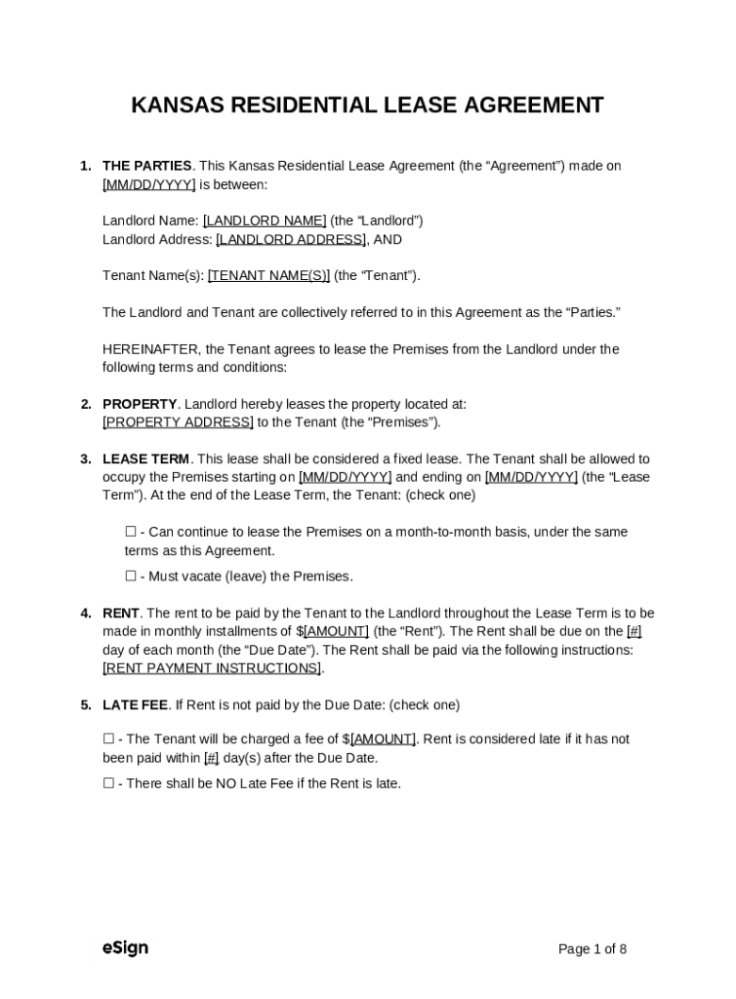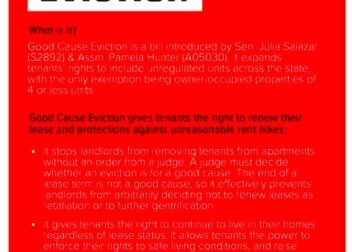What You Should Know About Kansas Rental Laws and Breaking a Lease
Kansas rental laws govern the rights and responsibilities of both landlords and tenants. Understanding these laws is essential for anyone involved in a rental agreement in the state. They help protect your rights, ensure fair treatment, and clarify what happens if things go wrong. Whether you’re a tenant looking to rent your first apartment or a landlord managing a property, knowing the basics can save you from future disputes and legal troubles.
Understanding Lease Agreements in Kansas
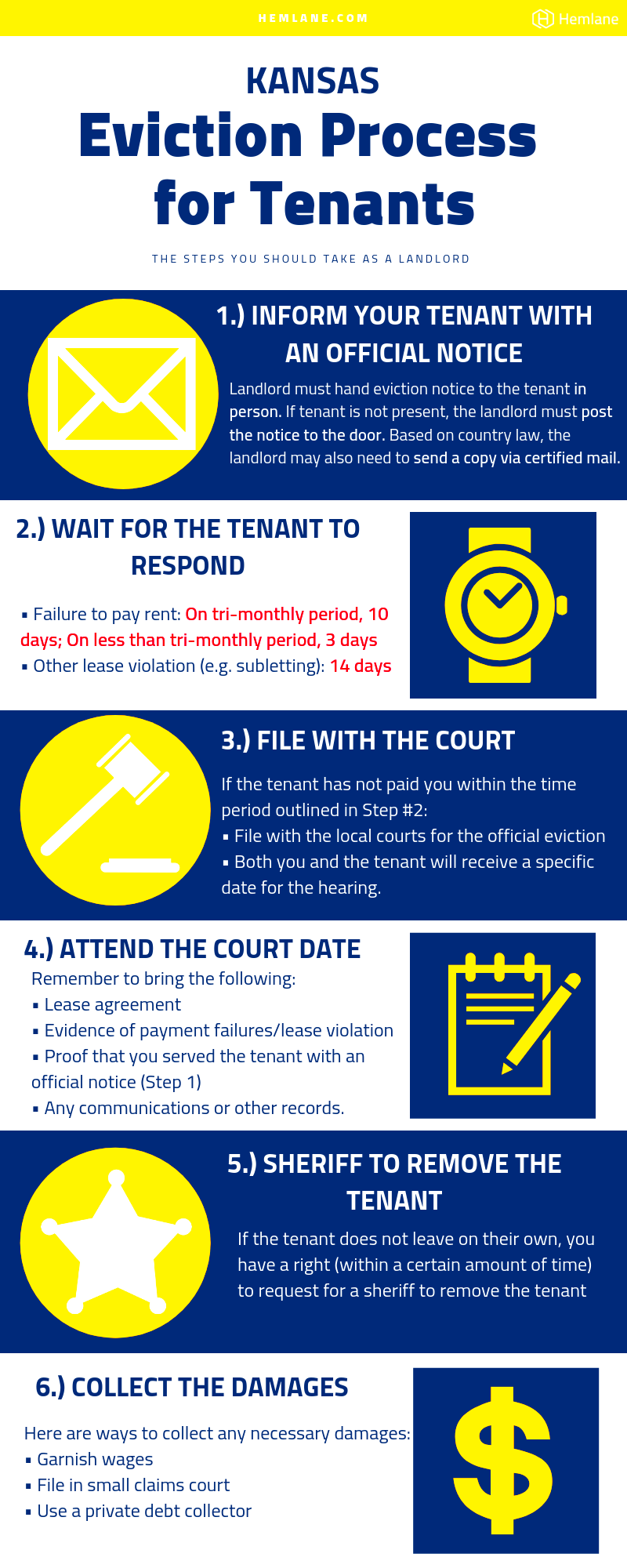
In Kansas, a lease agreement is a legal contract between a landlord and a tenant. It outlines the terms and conditions of renting a property, including:
- Duration: Specifies how long the lease will last, typically one year.
- Rent Amount: Indicates how much rent is due, when it is due, and acceptable payment methods.
- Security Deposit: Details the amount required for the security deposit and conditions for its return.
- Maintenance Responsibilities: Clarifies who is responsible for repairs and maintenance.
- Termination Conditions: Explains how the lease can be terminated by either party.
It’s important for both landlords and tenants to read and understand the lease thoroughly before signing. If there are any unclear terms, ask for clarification or consider consulting a legal professional. A well-defined lease can prevent many misunderstandings and disputes down the road.
Common Reasons for Breaking a Lease
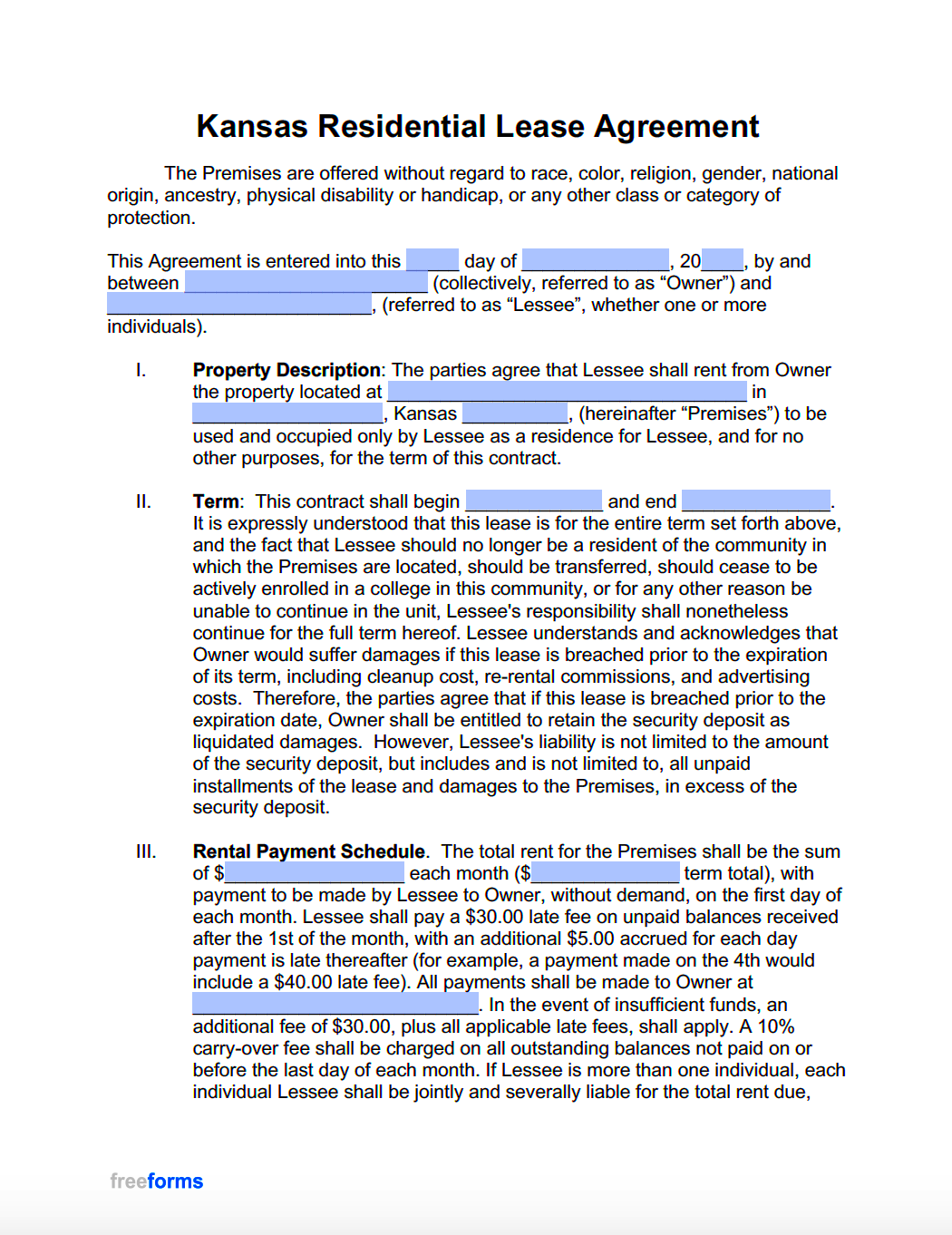
Breaking a lease can happen for various reasons, and some are more common than others. Here are a few typical scenarios:
- Job Relocation: When a tenant must move for a job, breaking the lease may be necessary.
- Health Issues: Serious health problems can lead to the need for a different living situation.
- Unsafe Living Conditions: If the property has health or safety violations, tenants may be justified in breaking the lease.
- Financial Hardship: Unexpected financial difficulties might make it hard to continue paying rent.
- Personal Reasons: Situations like divorce or family issues can also prompt a move.
Before breaking a lease, it’s crucial to check the lease terms for any penalties or notice requirements. Knowing your rights can help you make informed decisions and potentially avoid legal issues.
Tenant Rights Under Kansas Law
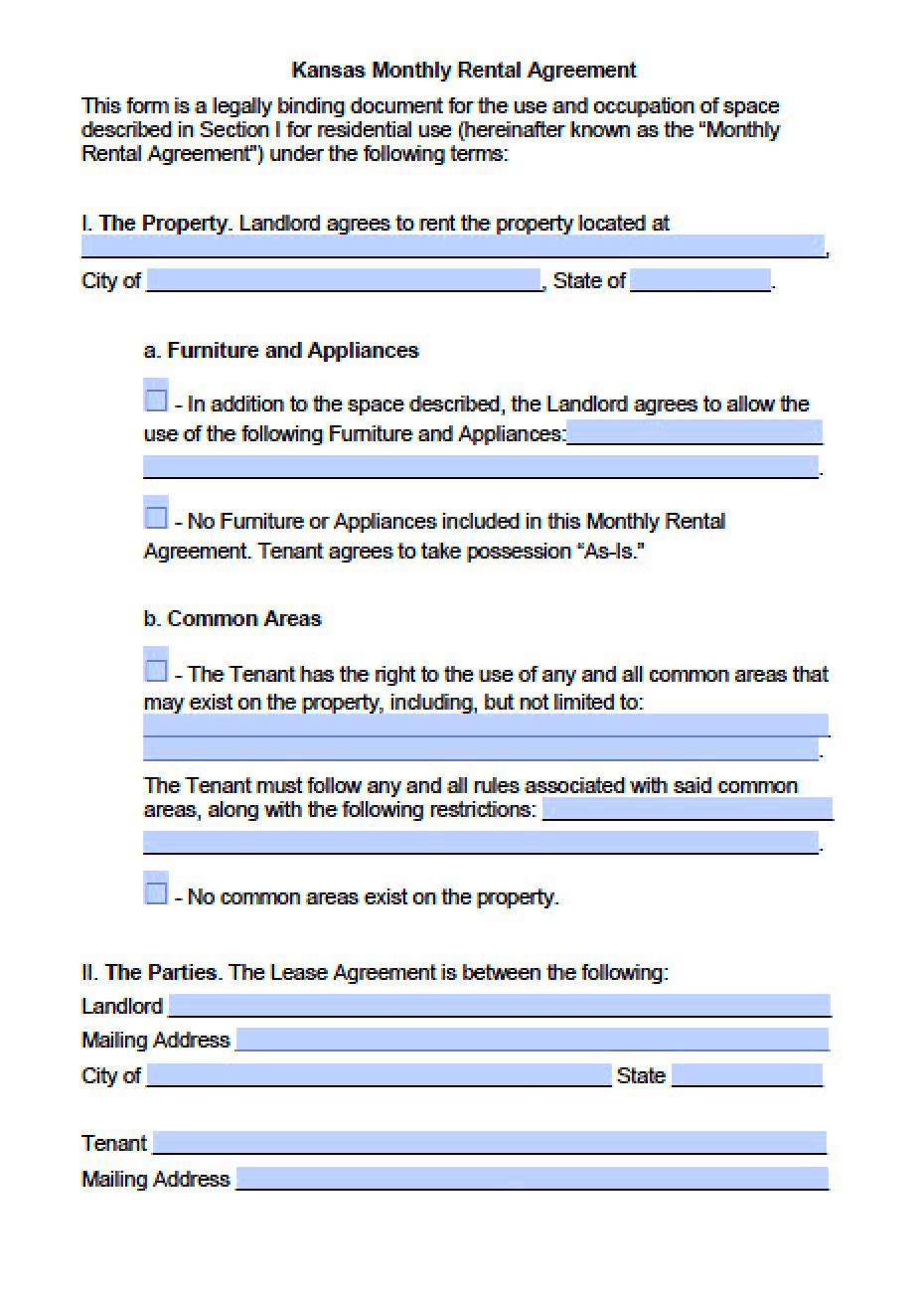
In Kansas, tenants have several rights that help protect them during their rental experience. Understanding these rights is crucial for both tenants and landlords to ensure a respectful and lawful relationship. Some key tenant rights include:
- Right to a Habitable Home: Tenants have the right to live in a safe and healthy environment. This includes proper heating, plumbing, and sanitation.
- Right to Privacy: Landlords must provide reasonable notice before entering the rental unit, typically 24 hours, except in emergencies.
- Right to Fair Housing: Discrimination based on race, color, religion, sex, national origin, familial status, or disability is prohibited.
- Right to Repairs: If there are maintenance issues, tenants have the right to request repairs. Landlords are obligated to address these issues in a timely manner.
- Right to Security Deposit Return: Tenants are entitled to receive their security deposit back after moving out, minus any lawful deductions for damages or unpaid rent.
Being aware of these rights can empower tenants to advocate for themselves and seek legal help if needed. It’s always a good idea to document any issues and keep communication with the landlord professional and respectful.
Landlord Responsibilities in Kansas
Landlords in Kansas have specific responsibilities that they must uphold to ensure their properties are safe and habitable. These responsibilities include:
- Maintaining the Property: Landlords must ensure that the rental unit is in good repair and free from health hazards.
- Respecting Tenant Privacy: Landlords should not enter a tenant’s home without proper notice, except in emergencies.
- Providing Essential Services: Landlords are required to provide necessary utilities such as water, heat, and electricity.
- Handling Security Deposits: They must follow state laws regarding the collection and return of security deposits, including providing an itemized list of any deductions.
- Responding to Tenant Requests: Timely responses to repair requests and concerns are crucial for maintaining a good landlord-tenant relationship.
By understanding these responsibilities, landlords can foster a positive rental environment and reduce the likelihood of disputes with tenants. Regular property inspections and open communication can help address issues before they escalate.
Steps to Take When Breaking a Lease
If you find yourself in a situation where you need to break a lease, it’s essential to follow certain steps to minimize potential consequences. Here’s a straightforward approach:
- Review Your Lease: Start by carefully reading your lease agreement. Look for any clauses about breaking the lease and the penalties involved.
- Communicate with Your Landlord: It’s best to have an open discussion with your landlord about your situation. They may be willing to negotiate terms for breaking the lease.
- Document Everything: Keep records of all communications and any reasons you have for breaking the lease. This documentation can be helpful later.
- Provide Written Notice: If you decide to proceed, give your landlord a written notice of your intent to break the lease. Include your moving date and any reasons.
- Consider Subleasing: If allowed by your lease, consider finding a subtenant to take over your lease. This can help you avoid penalties.
- Check for Possible Penalties: Understand what financial obligations you may have upon breaking the lease. This could include forfeiting your security deposit or paying a fee.
- Seek Legal Advice: If you are unsure about your rights or obligations, consult a legal professional who specializes in landlord-tenant law.
Taking these steps can help you navigate the process of breaking a lease with minimal stress and complications. Always remember to act in good faith and maintain open communication with your landlord.
Potential Consequences of Breaking a Lease
Breaking a lease can have several consequences that tenants should be aware of before making such a decision. These consequences can vary based on the terms of the lease and state laws, but here are some common ones:
- Financial Penalties: Many leases include a penalty for breaking the agreement early. This could mean losing your security deposit or having to pay a certain amount of rent until a new tenant is found.
- Negative Credit Impact: If the landlord reports the lease violation, it could affect your credit score, making it harder to rent in the future.
- Legal Action: Landlords might pursue legal action for breach of contract, which could result in additional fees or court costs.
- Difficulties in Finding New Rentals: Future landlords may be hesitant to rent to someone who has broken a lease in the past, leading to challenges in securing a new home.
- Loss of Rental History: Breaking a lease can tarnish your rental history, which can be a significant factor when applying for future rentals.
Being aware of these potential consequences can help tenants weigh their options more carefully before deciding to break a lease. If you find yourself needing to break your lease, it’s wise to consult with a legal expert to understand the ramifications.
Options for Tenants Considering Breaking a Lease
If you’re thinking about breaking a lease, know that there are options available that may help ease the process. Here are some paths you might consider:
- Negotiate with Your Landlord: Open a dialogue with your landlord. They may be understanding of your situation and could allow you to break the lease without penalties.
- Find a Subtenant: If your lease permits, consider subletting the property. This way, someone else can take over your lease obligations while you move on.
- Provide Valid Reasons: If your reasons for breaking the lease are legitimate—such as unsafe living conditions or health issues—present these to your landlord. They may be more accommodating.
- Offer to Pay a Fee: Some landlords might be willing to let you break the lease if you agree to pay a fee. This could be less costly than other penalties.
- Document Everything: Keep a record of all communications with your landlord and any relevant issues with the property. This can help in negotiations and prove your case if needed.
Exploring these options can provide a smoother transition and may help mitigate any negative consequences of breaking a lease.
Frequently Asked Questions
Here are some common questions tenants often have about breaking a lease in Kansas:
- Can I break my lease without any consequences? Generally, breaking a lease will have consequences, but they can vary based on the lease terms and your reasons.
- What are my rights if I need to break my lease? You have the right to a safe and habitable home. If there are significant issues, you may have grounds to break your lease without penalties.
- How much notice do I need to give my landlord? Most leases require at least 30 days’ notice before breaking a lease, but it’s essential to check your specific agreement.
- Can I get my security deposit back if I break the lease? You may lose your security deposit or face deductions for damages, but this depends on the lease terms and the condition of the property upon leaving.
- What if my landlord refuses to let me break the lease? If your landlord refuses to negotiate, consult with a legal professional to understand your options and rights.
Being informed about these common questions can help you navigate the complexities of breaking a lease and ensure that you make the best decision for your situation.
Conclusion on Kansas Rental Laws and Breaking a Lease
Understanding Kansas rental laws and the process of breaking a lease is vital for both tenants and landlords. By knowing your rights and responsibilities, you can navigate rental agreements with confidence. Whether you’re facing a job relocation, health issues, or any other reason to break a lease, it’s essential to follow the proper steps to minimize potential consequences. Open communication with your landlord and being informed about your options can make a significant difference. Remember, breaking a lease is a serious decision that can have lasting effects, so take the time to consider your choices carefully and seek legal advice if necessary.
